This is happening because the . (dot) symbol is used as a separator between objects that exist within Cloud Firestore documents. That's why you have this behaviour. To solve this, please avoid using the . symbol inside the key of the object. So in order to solve this, you need to change the way you are setting that key. So please change the following key:
com.example.android
with
com_example_android
And you'll be able to update your property without any issue. This can be done in a very simple way, by encoding the key when you are adding data to the database. So please use the following method to encode the key:
private String encodeKey(String key) {
return key.replace(".", "_");
}
And this method, to decode the key:
private String decodeKey(String key) {
return key.replace("_", ".");
}
Edit:
Acording to your comment, if you have a key that looks like this:
com.social.game_1
This case can be solved in a very simple way, by encoding/decoding the key twice. First econde the _ to @, second encode . to _. When decoding, first decode _ to . and second, decode @ to _. Let's take a very simple example:
String s = "com.social.game_1";
String s1 = encodeKeyOne(s);
String s2 = encodeKeyTwo(s1);
System.out.println(s2);
String s3 = decodeKeyOne(s2);
String s4 = decodeKeyTwo(s3);
System.out.println(s4);
Here are the corresponding methods:
private static String encodeKeyOne(String key) {
return key.replace("_", "@");
}
private static String encodeKeyTwo(String key) {
return key.replace(".", "_");
}
private static String decodeKeyOne(String key) {
return key.replace("_", ".");
}
private static String decodeKeyTwo(String key) {
return key.replace("@", "_");
}
The output will be:
com_social_game@1
com.social.game_1 //The exact same String as the initial one
But note, this is only an example, you can encode/decode this key according to the use-case of your app. This a very common practice when it comes to encoding/decoding strings.
